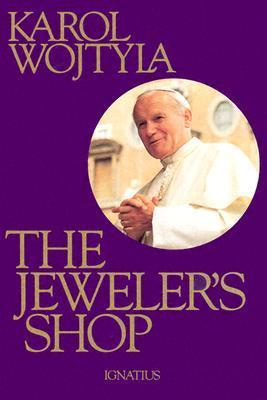Book Review: The Jeweler's Shop
by Karol Wojtyla (Pope Saint John Paul II)
Reviewed by Beverly Mantyh
(Ignatius Press, translated by Boleslaw Taborski, 1992) 125 pp., $15.95
Pope John Paul II’s first words as pope were, “Be not afraid!” The Jeweler’s Shop: A Meditation on the…
Keep reading with a 7-day free trial
Subscribe to My Secret is Mine to keep reading this post and get 7 days of free access to the full post archives.


